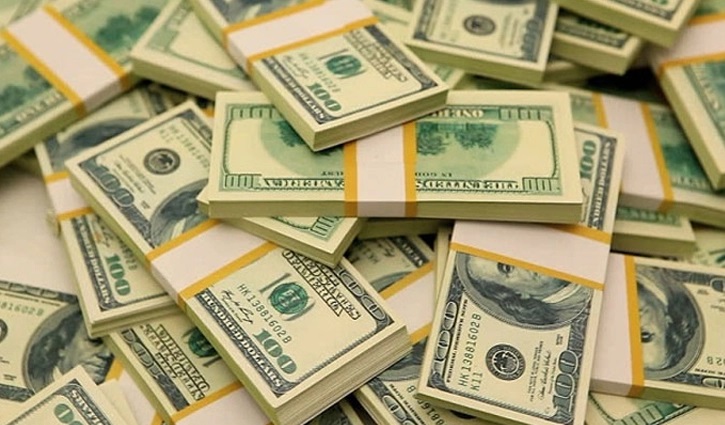Hasibul Aman
Published:2023-09-07 15:55:19 BdST
Fresh hike in dollar price to fuel inflation
The rise in the US dollar price is set to add to the sufferings of middle and low-income people, with a further fall in the taka's value and increased inflationary pressure in the country.
The Bangladesh Foreign Exchange Dealers Association (BAFEDA) and the Association of Bankers’ Bangladesh (ABB) increased the dollar price by Tk 0.50 to Tk 1, effective from Sunday.
Now, the interbank taka-dollar exchange rate has been fixed at Tk 109.5 for both exporters and remitters, which was Tk 108.5 and Tk 109, respectively.
As per the new decision, importers have to pay Tk 110 per dollar when opening a Letter of Credit (LC), up from Tk 109.5 earlier. The new rate will increase the import cost for essential commodities. In the case of payment through bank cards, consumers have to pay Tk 112 per dollar, Tk 1 higher than what they paid earlier.
The further devaluation of the taka against the greenback will raise import costs as banks are selling dollars at a higher price due to the increased cost of buying. The increased cost for consumers is believed to fuel inflation.
From early July, Bangladesh Bank introduced a 'market-based' dollar exchange rate, setting a cap on the maximum rate for the first half of the new fiscal year 2023-24. Bangladesh Bank is selling dollars to commercial banks at Tk 108.85 per dollar, an increase of Tk 2.85 from the previous rate.
The move came as part of the International Monetary Fund (IMF) prescription to leave the exchange rate to the market so that different rates do not exist in the country. The dollar price has been regulated by BAFEDA since September last year, and since then, the dollar price has been rising.
The new move will not only hike the price of imported items but also increase the price of other commodities as well. In July, the inflation rate surged to 9.69 percent, with food inflation shooting up at a higher rate of 9.76 percent. Meanwhile, rural inflation was found to be higher at 9.82 percent, the highest in recent times.
The whole world saw an abrupt rise in food and fuel prices immediately after the start of the Russia-Ukraine war on February 24 last year. The war triggered a dollar crisis in net importing countries like Bangladesh.
Bangladesh has been facing a severe dollar crisis since March last year. The dollar price was Tk 84 before 2021, rose to Tk 95 in August last year, and has now reached Tk 110, rising by Tk 15 in a year.
In two years, the dollar price rose by Tk 26, and the taka lost 30 percent of its value, official data suggests. To address the dollar crisis, the central bank continuously sold dollars to commercial banks from its reserves.
Last fiscal year, Bangladesh Bank sold $13.58 billion to commercial banks from its reserve, much higher than the $7.62 billion sold in the 2021-22 fiscal year. As a result, foreign exchange reserves plunged to $23 billion, according to IMF-set standards, down from $48 billion in August 2021, based on the central bank's own calculations.
Meanwhile, prices of global energy and food items like rice, wheat, and soybean oil have started rising again. In the last two months, the per-barrel energy price rose to $86 from $80, rice prices increased by 5 percent, and wheat by 2 percent.
Apart from selling dollars to banks, the central bank is trying to address the dollar crisis by restricting imports, but the increased cost of energy and food may further deplete its reserves.
Some analysts, however, think that the fresh hike in the interbank exchange rate is a move toward implementing the IMF's suggestion for ensuring a single dollar rate in the market.
Economist Ahsan H Mansur thinks that the taka needs protection through a hike in interest rates to make its value market-based and prevent its free fall against the US dollar.
"There should not be more than one rate of the dollar in the market—one for import, one for export, and another in the kerb market. The dollar rate needs to be made market-based," he said.
Remittance sent through formal channels is not rising because of the absence of a market-based rate, he said, adding that a single rate is very important as remitters get Tk 15-20 more from hundi compared to unofficial channels.
At the same time, economic analysts suggest finding ways to increase forex earnings instead of restricting imports, as they fear this may decrease investment and cut jobs.
Unauthorized use or reproduction of The Finance Today content for commercial purposes is strictly prohibited.


